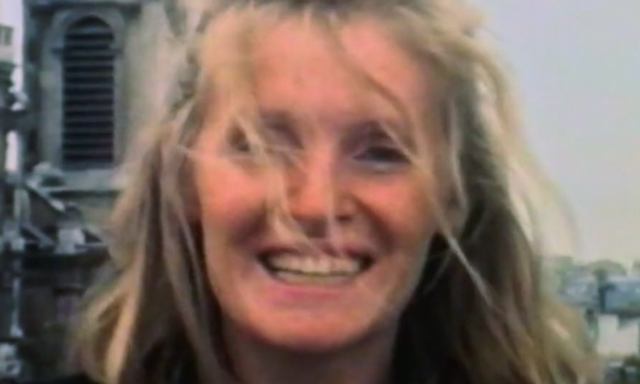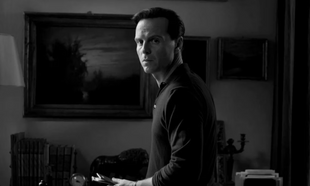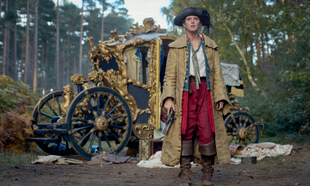From the opening credits of 'Murder at the Cottage' and the frequent shots of Fastnet, what's clear is that there is a cinematic presence in the documentary, and not just in Jim Sheridan's narration either.
There's a gothic sensibility to it all. There's a devil in the hills, a mysterious and glamourous woman who is reduced to a ghostly presence, a meandering tale made up of lies and half-truths, poetic allusions to evil and justice, and much more. Yet, all of it is intercut with a forensic retreading of a case covered extensively in the media and, more recently, in the smash-hit podcast 'West Cork'. Indeed, if you listened to 'West Cork', quite a lot of the information covered there is in 'Murder at the Cottage'.
So what separates them? 'West Cork' may have an outsider's unbiased perspective, whereas 'Murder in the Cottage' places Jim Sheridan smack bang in the middle of it all. He shuffles around the bramble at the murder scene. He directly questions the lead suspect in the case, Ian Bailey. He narrates long sections of the show's five episodes, often interjecting with his own take on a particular topic. It's hard to know if it's a benefit or a hindrance, because whereas a typical true crime documentary would lead the audience in a far less obvious manner, here Jim Sheridan questions everything and can't help but interrogate the facts and people's stories as he finds them.
His presence does become slightly overbearing, to a point where you'd almost prefer he simply let a moment sit rather than talk over it. In an early episode, Sheridan specifically holds up personal pictures of Sophie Toscan du Plantier, and then argues with himself over showing pictures from the scene of the crime. While the intent may be to show that he's not trying to be sensationalist in doing so, it feels almost as though he's grappling with guilt over his very involvement as a director. The result is that you then begin to question your own participation as an audience member. This is something that's hung over the swell of interest in true crime documentaries; whether they're exploitative, and is there a question of ethics to be asked in all this?
From the third episode on, the documentary shifts gears and delves into Ian Bailey's personal life, his many legal clashes with the French judicial system, his private diaries made public and the disturbing material therein, the severely compromised investigation by the Gardai, the witness statements and the many inconsistencies involved - all of it becoming entangled before ultimately unraveling at the French trial which saw Bailey convicted of murder and sentenced in absentia. The camera is placed uncomfortably close to Bailey throughout all this. He drinks heavily on screen and appears to be inebriated in a number of scenes, slurring his words and trying to dictate to the camera as he goes. His former partner, Jules Thomas, discusses his physical abuse and his problem drinking in stark terms.
Jim Sheridan, though he is a driving force in nearly every episode, sets the camera up and allows his interviewees to open themselves fully to him. None of them are guarded, nor does he present any leading questions to them. It's a testament to his skill as an interviewer that those he speaks to give of themselves so fully with little in the way of encouragement from him. The dramatisations of certain scenes knit together with the archival news footage and the interviews well, and the gloom and rain of Schull adds to the atmosphere around it all.
'Murder at the Cottage' offers few answers because the truth is that the case of Sophie Toscan du Plantier is one riddled with inconsistencies, dead-ends, red herrings, and frustrations. The subtitle for the series is 'The Search For Justice For Sophie', but the reality is that it's a futile one.
As Sheridan dolefully announces in the final episode, there are no winners in this. The search has no end, and justice eludes everyone involved.












































































